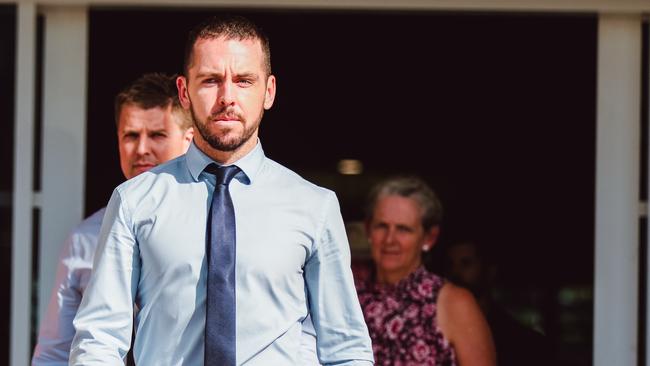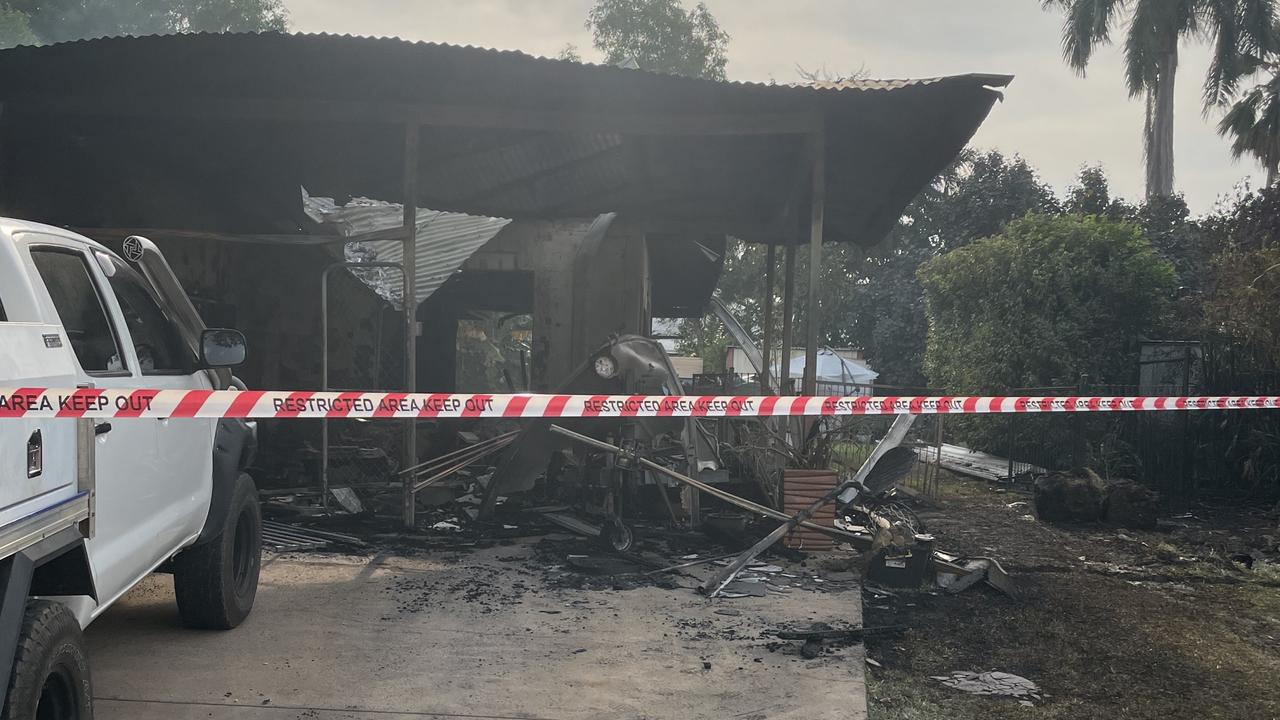Zach Rolfe expected to take stand in Kumanjayi Walker inquest in July despite pending appeals
Counsel assisting the Coroner said Mr Rolfe’s lawyers had provided a statement by a friend of his former fiancee who could also potentially be called for cross examination in July.

Police & Courts
Don't miss out on the headlines from Police & Courts. Followed categories will be added to My News.
Zach Rolfe is still expected to take the stand this year at an inquest into the death of the man he killed during a botched arrest in Yuendumu in 2019, despite a pending court challenge.
The former police officer was acquitted on all charges by a Supreme Court jury last year after fatally shooting 19-year-old Warlpiri-Luritja man Kumanjayi Walker.
Mr Rolfe was excused from giving evidence at the ongoing inquest in November after objecting that his answers could be used against him in NT Police disciplinary proceedings.
That objection was later dismissed on appeal by the Supreme Court and Mr Rolfe was then sacked, after penning a lengthy essay defending his use of racist language in text messages that emerged during the inquest.
Mr Rolfe has been slated to return to the witness box on July 31, while both the Supreme Court ruling and his dismissal from the police force remain under further appeal.
On Friday, counsel assisting Coroner Elisabeth Armitage, Peggy Dwyer, told a directions hearing in Darwin the inquiry planned to press ahead on the assumption those appeals would resolve.
“We will only be in a position to proceed with the inquest once the issue of penalty privilege has been resolved by the Court of Appeal,” she said.
“For efficiency, at the moment, we need to proceed as if that matter will be resolved by the 31st of July and to make plans accordingly.”
Dr Dwyer said Mr Rolfe’s lawyers had provided a statement by a friend of his former fiancee who could also potentially be called for cross examination in July.
“The proposal from counsel assisting is, in effect, that your honour would only receive the evidence in that statement about what (Claudia) Campagnaro’s friend saw directly, and what she heard directly, Mr Rolfe say, and also any evidence that puts that in context,” she said.
Dr Dwyer also quoted from Mr Rolfe’s essay, in which he claimed his text messages “had been taken out of context”, but said his legal team was yet to request that any other messages be included in the evidence.
“He suggested that the police commissioner, this court, and myself as counsel assisting, and every party who agreed the text messages would be released has had access to every single one of his messages and has only released just a tiny snippet to make him out to be racist,” she said.
“Again, I invite those appearing for Mr Rolfe to review the table that has been circulated by those assisting, it’s another opportunity for them to tell the counsel assisting team if there are further text messages in that download, or perhaps on his current phone, that he wants to be released, to have those earlier messages put in context.”





